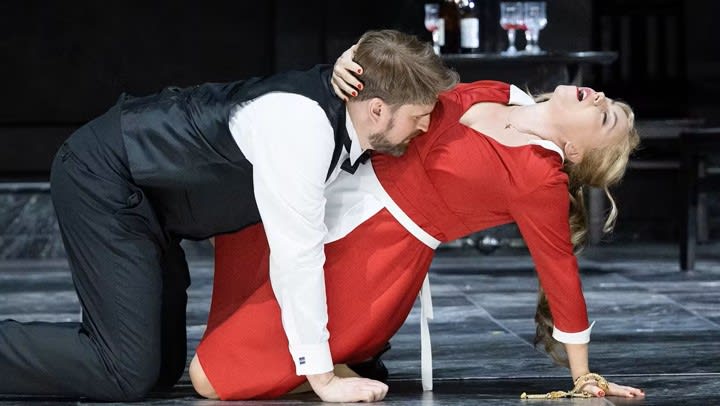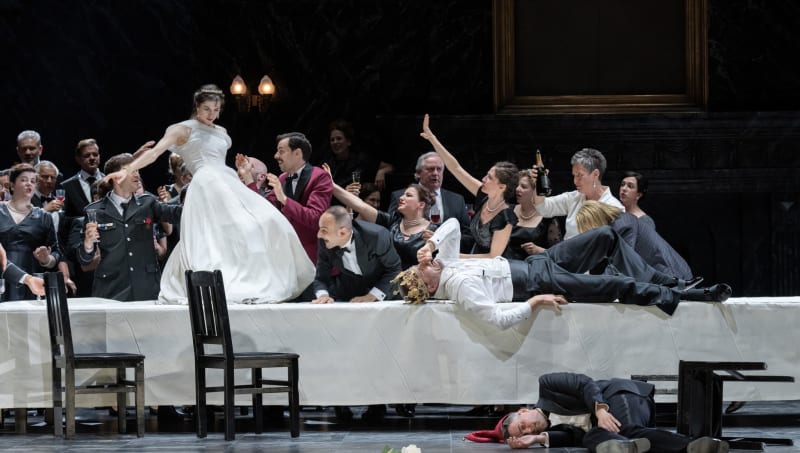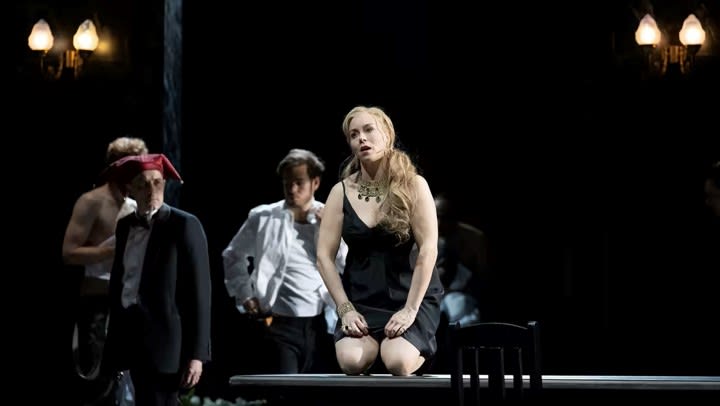What a revelation. Schreker’s rich, magnificent opera, performed here by a brilliant cast, deserves a place among 20th century masterpieces and left me wondering why it has lain virtually forgotten for so long. This is for me is the DVD of 2023 so far.
My only previous encounter with the Austrian Jewish composer’s operas was a Flemish production of his final one, The Blacksmith of Ghent, written in 1932, which was heckled by fascist thugs, and after which his music was banned.
Like that, and most of his other operas, Der Schatzgräber (The Treasure Hunter), is ostensibly a fairy-story, in which a wandering minstrel with a magic lute undertakes to recover a queen’s stolen jewels that had given her everlasting youth and beauty. In the way is an evil servant who covets for herself both the gems and the hunter.
But like most fables, the tale, for which Schreker himself wrote the libretto, veils a deeper, darker tale of human weakness—of vanity, greed and erotic obsession.
The sensual, late-Romantic score is breathtakingly beautiful, lush, lyrical and accessible. The opening reminded me of the beginning of Strauss’s Salome, the orchestration occasionally of Berg, and the pivotal third act, a 40-minute love poem for the minstrel Elis and the fantasising Els, has the greatness of Tristan and Isolde. Conductor Marc Albrecht gives full expression to the music’s emotional surges, yet despite the massive orchestra and soaring lines, the music always retains a wonderful translucency, which is perfectly captured in the recording.
Tenor Daniel Johansson is a striking, intrepid minstrel, with two parables as showpiece arias and an exquisite closing elegy to bring tears to the eyes. Fellow Swede, soprano Elisabet Strid, gives a powerful vocal and dramatic performance as Els, the courtier who covets the jewels for herself. Seductive, murderous, yet worthy of compassion, she presents a character of fascinating complexity, and her ravishing song "Klein war ich noch" that opens act 3 would be a wow of a concert encore if ever I heard one.
Michael Laurenz combines exuberance and pathos as the Jester, not a comic figure but an observer of the follies in others.
A photograph of the opera’s production in Frankfurt in 1920 dutifully dressed mediaeval villagers in hose, dirndls and pointy hats. That is not the way of European opera these days, in which the underlying human condition behind fanciful folk tales are more to the fore. Thus Christof Loy’s Berlin production is set in the banqueting hall of a dissolute, fascistic court.
His insightful direction ensures that the piece remains gripping throughout. There’s no prettiness here, as a century ago—the beauty lies in the music—but there is room for many interpretations, and I hope to see more to come.



